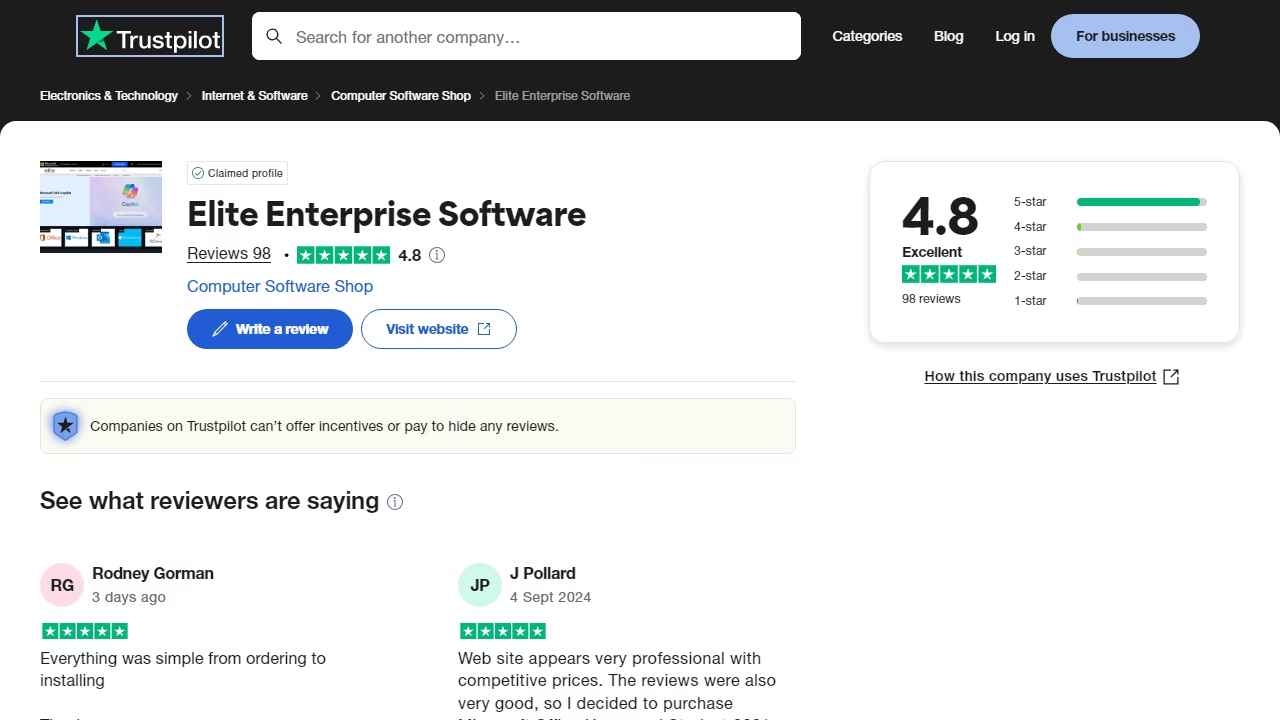What Are the Limitations of Microsoft 365 E1 Compared to Higher-Tier Plans?

Microsoft 365 is a powerful suite of tools designed to boost productivity, enhance collaboration, and improve security for businesses of all sizes. The Microsoft 365 E1 plan offers a range of core features ideal for organizations looking for cloud-based solutions at an affordable price. However, compared to higher-tier plans like Microsoft 365 E3 and E5, there are some notable limitations. In this article, we'll explore these differences to help you understand what you might be missing out on by choosing Microsoft 365 E1.
1. No Desktop Office Apps
One of the most significant limitations of Microsoft 365 E1 compared to E3 and E5 is that it does not include desktop versions of Office applications (like Word, Excel, PowerPoint, and Outlook). While E1 users can access the online versions of these apps through the web, they miss out on the full functionality and offline access that comes with the desktop versions. If your business needs the complete suite of Office applications, you’ll need to look at Microsoft 365 E3 or E5, both of which include desktop apps.
2. Limited Security Features
While Microsoft 365 E1 includes some basic security features, such as Exchange Online Protection (EOP) for email security, it lacks many advanced security tools available in higher-tier plans. For example, E3 and E5 offer features like Advanced Threat Protection (ATP), data loss prevention (DLP), and more sophisticated compliance tools. These features are especially important for businesses that need enhanced security for sensitive data and want to protect against increasingly sophisticated cyber threats.
3. No Enterprise-Level Compliance Tools
Microsoft 365 E1 offers basic compliance tools, but it does not provide the more advanced options found in E3 and E5. Higher-tier plans include tools for legal holds, archiving, and the ability to manage data retention policies, which are crucial for businesses in regulated industries or those that need to meet specific compliance requirements. If your organization needs advanced compliance solutions, you’ll likely need to upgrade to Microsoft 365 E3 or E5.
4. Reduced Storage Capacity
Microsoft 365 E1 provides users with 1 TB of OneDrive storage, which is generally sufficient for small to medium-sized businesses. However, E3 and E5 plans offer additional storage and even the ability to request more storage if necessary. For businesses with significant data storage needs, these plans may be more suitable. E3 and E5 also provide more advanced data management and backup solutions.
5. Limited Device Management Options
Another key limitation of Microsoft 365 E1 is its lack of device management features, which are available in the E3 and E5 plans. Higher-tier plans offer tools like Microsoft Intune, which enables businesses to manage and secure employees' devices, enforce security policies, and even wipe data remotely. For organizations that need to manage a fleet of devices, particularly in a hybrid or remote work environment, these features are invaluable.
6. Fewer Business Intelligence Tools
Business intelligence and analytics tools are another area where Microsoft 365 E1 falls short compared to higher-tier plans. E3 and E5 plans include access to Power BI Pro, which allows users to create and share business intelligence reports. In contrast, Microsoft 365 E1 only includes basic reporting features, which may not meet the needs of larger organizations that require deeper insights into their data.
7. No Audio Conferencing and Phone System
While Microsoft 365 E1 includes Teams for collaboration, it does not offer the full set of telephony features that come with E3 and E5 plans. Higher-tier plans include audio conferencing capabilities, allowing users to join team meetings via phone, and the ability to integrate a phone system for complete voice capabilities. If your business relies on audio conferencing or needs integrated phone systems, you will need to upgrade to E3 or E5.
8. Limited Customization for Business Applications
With Microsoft 365 E1, customization options for applications like SharePoint, Teams, and others are limited. E3 and E5 plans offer additional customization features, allowing businesses to tailor applications to their specific needs. For instance, with E3 and E5, businesses can access more advanced SharePoint capabilities and create more complex workflows with Power Automate and Power Apps.
Conclusion: Should You Choose Microsoft 365 E1?
Microsoft 365 E1 is a solid option for businesses that need basic productivity and collaboration tools at an affordable price. However, it does come with limitations compared to higher-tier plans like Microsoft 365 E3 and E5. If your organization requires advanced security features, desktop Office apps, business intelligence tools, or more extensive device management, you might want to consider upgrading to a higher-tier plan.
Ultimately, the choice between Microsoft 365 E1 and other plans depends on the specific needs of your business. For many small businesses or those with basic productivity needs, Microsoft 365 E1 is an excellent starting point. However, as your organization grows and your requirements become more complex, it’s worth exploring the additional features offered by E3 and E5 to ensure you’re getting the best tools to support your team’s success.

